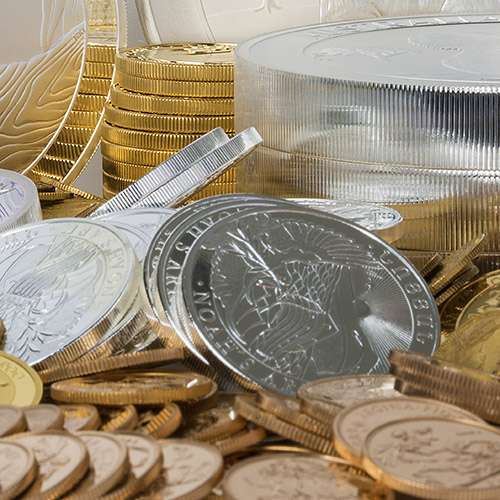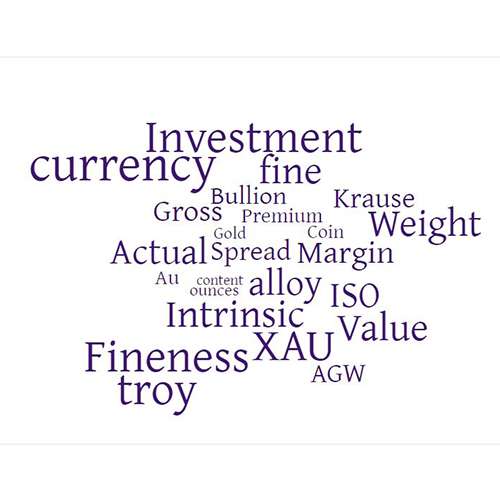Should I Invest in Paper Gold?
Synopsis
Paper gold investments, such as ETFs, physical gold certificates, and futures contracts, offer a convenient and flexible way to gain exposure to the gold market, but come with potential risks such as counterparty risk and price manipulation concerns.
Paper Gold Investment: A Comprehensive Guide
For those seeking to diversify their investment portfolio and gain exposure to the precious metal market, gold investment can be an appealing prospect. However, for many individuals, the idea of acquiring and securely storing physical gold can be intimidating. This is where paper gold investment comes in, offering a convenient alternative to traditional gold ownership.
Paper gold investment refers to the acquisition of gold through financial instruments that grant ownership without the need for physical possession. This includes Exchange-Traded Funds (ETFs), Physical Gold Certificates, Futures Contracts, Commodity Pools Accounts, and Exchange-Traded Funds (ETFs).
Types of Paper Gold Investment
· Exchange-Traded Funds · Physical Gold Certificates · Futures Contracts · Commodity Pools Accounts ·
Exchange-Traded Funds (ETFs)
ETFs allow investors to invest in the gold market via the stock market by holding actual gold bars in a trust. These trusts then issue shares, which represent ownership of the underlying gold. ETFs are highly liquid, offer low costs, and can be easily bought and sold during trading hours, making them accessible to a wide range of investors.
Physical Gold Certificates
Physical gold certificates are certificates that denote ownership of a specific amount of gold stored in a bank. These certificates are transferable and highly liquid, allowing investors to quickly sell their holdings if the need arises. Physical gold certificates also eliminate the need for storage costs, but come with the risk of the bank holding the certificates defaulting on its obligations.
Futures Contracts
Futures contracts are agreements to buy or sell a predetermined amount of gold at a specified price and date in the future. While futures contracts can enable investors to profit from fluctuations in the price of gold, they are complex and carry a higher degree of risk compared to ETFs and physical gold certificates.
Commodity Pools Accounts
Commodity pools are investment funds that pool capital from multiple investors to invest in various commodities, including gold. Commodity pools can offer investors access to the gold market with the benefits of professional management and diversification.
Advantages of Paper Gold Investment
The benefits of paper gold investment are numerous and include ease of access, flexibility, low costs in comparison to physical gold ownership, and liquidity. ETFs and physical gold certificates can be bought and sold quickly and easily, eliminating the need for storage and insurance costs.
Disadvantages of Paper Gold Investment
When considering paper gold investment, it is also important to be aware of the potential drawbacks. These include counterparty risk, price manipulation concerns, and reduced physical ownership. Counterparty risk refers to the risk of the issuer of the ETF or the bank holding the physical gold certificates defaulting on their obligations. Price manipulation concerns refer to the possibility of the price of gold being artificially inflated, negatively impacting the value of the investment. Reduced physical ownership means that the investor does not actually hold the gold, which may be a concern for those who prefer control over their assets.
Paper Gold vs Physical Gold
Paper gold refers to investments that provide exposure to the gold market but do not involve physical ownership of the metal. Physical gold, on the other hand, refers to physical ownership of the metal, such as gold coins or bars.
Paper gold options, such as ETFs and futures contracts, offer convenience and liquidity but come with counterparty risk and the potential for price manipulation. Physical gold, on the other hand, offers the peace of mind of actual ownership, but can be more expensive to purchase and store and may not provide as much liquidity.
Is Paper Gold Right for You?
In conclusion, paper gold investment can provide a viable alternative to physical gold ownership for those seeking to diversify their investment portfolio and gain exposure to the precious metal market. However, as with all investments, it is crucial to perform thorough due diligence and understand the risks involved to make an informed decision.
Related Articles
This guide and its content is copyright of Chard (1964) Ltd - © Chard (1964) Ltd 2024. All rights reserved. Any redistribution or reproduction of part or all of the contents in any form is prohibited.
We are not financial advisers and we would always recommend that you consult with one prior to making any investment decision.
You can read more about copyright or our advice disclaimer on these links.











